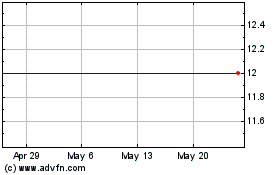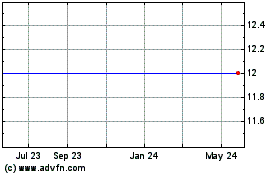Forest Laboratories, Inc. (NYSE: FRX) announced today that
DalirespTM (roflumilast) was approved by the U.S. Food and Drug
Administration (FDA) as a treatment to reduce the risk of chronic
obstructive pulmonary disease (COPD) exacerbations in patients with
severe COPD associated with chronic bronchitis and a history of
exacerbations. The efficacy and safety of Daliresp was evaluated in
eight clinical studies including 9,394 adult patients.
COPD is an under-diagnosed, progressive, irreversible lung
disease. Symptoms of COPD include breathlessness, chronic cough and
excessive production of phlegm. A significant worsening of symptoms
- called an exacerbation - can last several weeks and often
requires substantial medical intervention, including
hospitalization.
Daliresp is the first and only selective phosphodiesterase-4
(PDE4) inhibitor approved and is an oral tablet taken once daily.
While the specific mechanism by which Daliresp exerts its
therapeutic action in COPD patients is not well defined, it is
thought to be related to the effects of increased intracellular
cyclic AMP in lung cells. Forest expects Daliresp to be available
to wholesalers in the second calendar quarter of 2011.
“We are pleased with the FDA approval of Daliresp and we are
looking forward to making this treatment available in the United
States for the millions of patients suffering from severe COPD,”
commented Howard Solomon, Chairman, Chief Executive Officer and
President of Forest Laboratories. “The approval of Daliresp gives
physicians and patients a much needed treatment option in a unique
oral dosage form that can augment the existing armamentarium of
inhaled therapies.”
“The introduction of Daliresp as an additional treatment option
to reduce the risk of COPD exacerbations is an important
development for patients with severe COPD associated with chronic
bronchitis and a history of exacerbations,” said Professor Stephen
Rennard, M.D., University of Nebraska Medical Center and clinical
trial investigator.* “Reducing the risk of COPD exacerbations is an
important goal of COPD treatment.”
Data Highlights
The efficacy and safety of Daliresp was evaluated in eight
randomized double-blind, controlled, parallel group clinical trials
involving 9,394 adult patients, of which 4,425 were treated with
Daliresp 500 mcg.
1-Year Exacerbation Trials Supporting Approval
Of the eight trials, two 1-year trials supported approval and
enrolled patients with severe COPD associated with chronic
bronchitis, at least one COPD exacerbation in the previous year,
and at least a 20 pack-year smoking history. In these trials,
long-acting beta-agonists and short-acting anti-muscarinics were
used by 44% and 35% of patients treated with Daliresp and 45% and
37% of patients treated with placebo, respectively. The rate of
exacerbations (moderate or severe) was one of the co-primary
endpoints. Moderate exacerbations were defined as requiring
intervention with systemic glucocorticosteroids and severe
exacerbations were defined as leading to hospitalization and/or to
death. One of these trials randomized a total of 1525 patients (765
on Daliresp) and the other randomized a total of 1571 patients (772
on Daliresp). In both trials, Daliresp 500 mcg once daily
demonstrated a significant reduction in the rate of moderate or
severe exacerbations compared to placebo. Daliresp reduced the rate
of moderate or severe exacerbations by 15% in one trial and by 18%
in the other trial.
These trials also evaluated the effect of Daliresp on lung
function as the other co-primary endpoint. Daliresp is not a
bronchodilator and is not indicated for the relief of acute
bronchospasm.
Summary of All Studies
Of the eight trials, two were placebo-controlled dose selection
trials, four were placebo-controlled 1-year trials primarily
designed to evaluate the efficacy of Daliresp on COPD
exacerbations, and two were 6-month trials with Daliresp as add-on
therapy to a long-acting beta-agonist or long-acting
anti-muscarinic which provide safety support for the Daliresp COPD
program. The initial two 1-year trials identified the patient
population that could benefit from Daliresp; FDA approval of
Daliresp was based on the results from the two subsequent 1-year
exacerbation trials that are described above.
Safety
The most common adverse reactions, occurring in less than or
equal to 10% of patients receiving Daliresp in the eight trials,
included diarrhea, weight decrease, nausea, headache, back pain,
influenza, insomnia, dizziness, and decreased appetite.
About Daliresp
Daliresp (500 mcg) is a selective PDE4 inhibitor that is
indicated as a treatment to reduce the risk of exacerbations in
patients with severe COPD associated with chronic bronchitis and a
history of exacerbations. Daliresp is a once-daily oral tablet and
is the first and only selective PDE4 inhibitor approved by the
FDA.
While the specific mechanism by which Daliresp exerts its
therapeutic action in COPD patients is not well defined, it is
thought to be related to the effects of increased intracellular
cyclic AMP in lung cells. Daliresp is not a steroid, is not a
bronchodilator, and is not indicated for the relief of acute
bronchospasm.
Daliresp will be available nationwide in the second calendar
quarter of 2011. In August 2009 Forest Laboratories and Nycomed
entered into a definitive collaboration and distribution agreement
pursuant to which Forest acquired an exclusive license for Daliresp
in the United States.
Indication
Daliresp is indicated as a treatment to reduce the risk of COPD
exacerbations in patients with severe COPD associated with chronic
bronchitis and a history of exacerbations. Limitations of use:
Daliresp is not a bronchodilator and is not indicated for the
relief of acute bronchospasm.
About COPD
COPD is an under-diagnosed, progressive, irreversible lung
disease and is the third leading cause of death in the U.S.
Approximately 12 million people in the U.S. are currently diagnosed
with COPD and an additional 12 million are likely to have the
disease and not know. Approximately half of COPD patients treated
by a physician with controller medications have severe COPD. Of the
patients diagnosed with severe COPD, almost three quarters, or 2.8
million, have chronic bronchitis.
Symptoms of COPD include breathlessness, chronic cough and
excessive production of phlegm. A significant worsening of symptoms
called an exacerbation can last several weeks and often requires
substantial medical intervention, including hospitalization.
Exacerbations can result in worsening health status, lung function
decline, and increased risk of death.
Important Safety Information
Contraindications
Daliresp is contraindicated in patients with moderate to severe
liver impairment (Child-Pugh B or C).
Warnings and Precautions
Acute Bronchospasm
Daliresp is not a bronchodilator and should not be used for the
relief of acute bronchospasm.
Psychiatric Events including Suicidality
Treatment with Daliresp is associated with an increase in
psychiatric adverse reactions (5.9% of patients treated with
Daliresp versus 3.3% treated with placebo). Instances of suicidal
ideation and behavior, including completed suicide, have been
observed in clinical trials. Three patients treated with Daliresp
experienced suicide-related adverse reactions (one completed
suicide and two suicide attempts) compared to one patient (suicidal
ideation) treated with placebo. Patients, their caregivers, and
families should be advised of the need to be alert for the
emergence or worsening of insomnia, anxiety, depression, suicidal
thoughts or other mood changes, and if such changes occur to
contact their healthcare provider. Prescribers should carefully
weigh the risks and benefits of treatment with Daliresp in patients
with a history of depression and/or suicidal thoughts or behavior
and evaluate the risks and benefits of continuing treatment if such
events occur.
Weight Decrease
Weight loss was a common adverse reaction in Daliresp clinical
trials (7.5% of patients treated with Daliresp vs 2.1% treated with
placebo). In addition to being reported as adverse reactions,
weight was prospectively assessed in two 1-year trials. In these
studies, 20% of patients receiving Daliresp experienced moderate
weight loss (5-10% of body weight) vs 7% receiving placebo and 7%
receiving Daliresp vs 2% receiving placebo experienced severe
weight loss (>10% body weight). During follow-up after treatment
discontinuation, the majority of patients with weight loss regained
some of the weight they had lost while receiving Daliresp. Patients
treated with Daliresp should have their weight monitored regularly.
If unexplained or clinically significant weight loss occurs, weight
loss should be evaluated, and discontinuation of Daliresp should be
considered.
Drug Interactions
Use of Daliresp with strong cytochrome P450 enzyme inducers (eg,
rifampicin, phenobarbital, carbamazepine, phenytoin) is not
recommended. The risk of using Daliresp with inhibitors of CYP3A4
and/or CYP1A2 enzymes should be weighed carefully against
benefit.
Adverse Reactions
The most common adverse reactions observed with Daliresp
(incidence ≥ 2% and greater than placebo) were diarrhea (10% vs
3%), weight decreased (8% vs 2%), nausea (5% vs 1%), headache (4%
vs 2%), back pain (3% vs 2%), influenza (3% vs 3%), insomnia (2% vs
1%), dizziness (2% vs 1%), decreased appetite (2% vs 0%).
Use in Specific Populations
There are no adequate and well controlled studies in pregnant
women. Daliresp should be used during pregnancy only if the
potential benefit justifies the potential risk to the fetus.
Daliresp should not be used during labor and delivery.
Daliresp should not be used by women who are nursing as
excretion of roflumilast and/or its metabolites into human milk is
probable and there are no human studies that have investigated
effects of Daliresp on breast-fed infants.
The safety and effectiveness of Daliresp have not been
established in patients less than 18 years of age.
No overall differences were observed in safety or effectiveness
between patients greater than or less than 65 years of age.
About Nycomed
Nycomed is a privately owned global pharmaceutical company with
a differentiated portfolio focused on branded medicines in
gastroenterology, respiratory and inflammatory diseases, pain,
osteoporosis and tissue management. An extensive range of OTC
products completes the portfolio. Its R&D is structured around
partnerships and in-licensing is a cornerstone of the company's
growth strategy. Nycomed employs 12,000 associates worldwide, and
its products are available in more than 100 countries. It has
strong platforms in Europe and in fast-growing markets such as
Russia/CIS and Latin America. While the US and Japan are
commercialised through best-in-class partners, Nycomed plans to
further strengthen its own position in key Asian markets.
Headquartered in Zurich, Switzerland, the company generated total
sales of €3.2 billion in 2009 and an adjusted EBITDA of
€1.1 billion. For more information visit www.nycomed.com
About Forest Laboratories
Forest Laboratories’ (NYSE: FRX) longstanding global
partnerships and track record developing and marketing
pharmaceutical products in the United States have yielded its
well-established central nervous system and cardiovascular
franchises and innovations in anti-infective and respiratory
medicine. The Company’s pipeline, the most robust in its history,
includes product candidates in all stages of development across a
wide range of therapeutic areas. The Company is headquartered in
New York, NY. To learn more, visit www.FRX.com
Except for the historical information contained herein, this
release contains forward-looking statements within the meaning of
the Private Securities Litigation Reform Act of 1995. These
statements involve a number of risks and uncertainties, including
the difficulty of predicting FDA approvals, the acceptance and
demand for new pharmaceutical products, the impact of competitive
products and pricing, the timely development and launch of new
products, and the risk factors listed from time to time in Forest
Laboratories' Annual Report on Form 10-K, Quarterly Reports on Form
10-Q, and any subsequent SEC filings.
*Professor Stephen Rennard, M.D., University of Nebraska Medical
Center is a paid consultant for Forest Laboratories.
Forest Road Acquisition (NYSE:FRX)
Historical Stock Chart
From Jun 2024 to Jul 2024

Forest Road Acquisition (NYSE:FRX)
Historical Stock Chart
From Jul 2023 to Jul 2024
